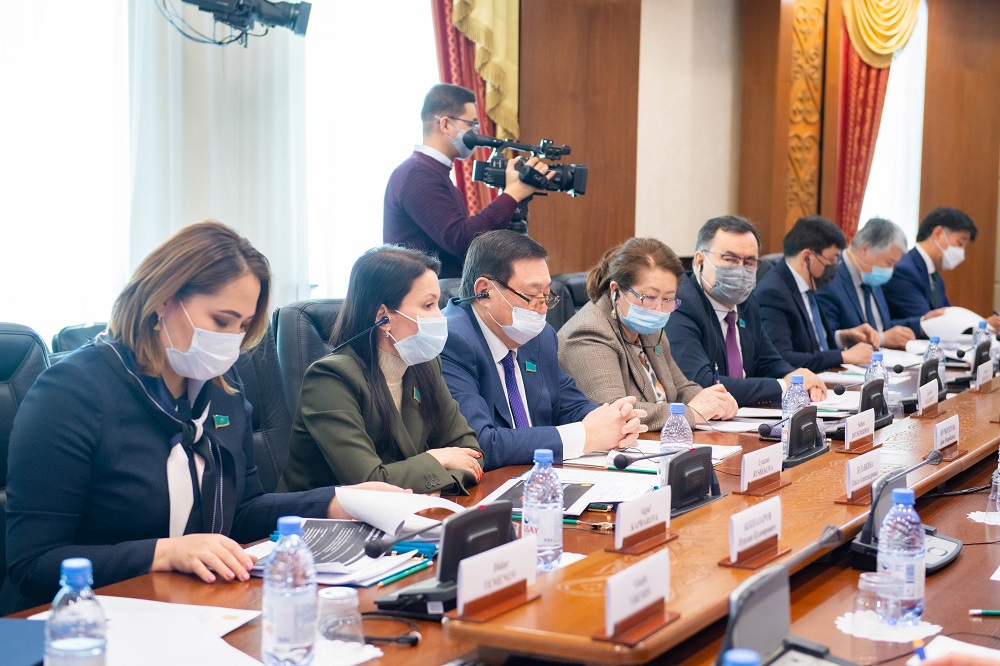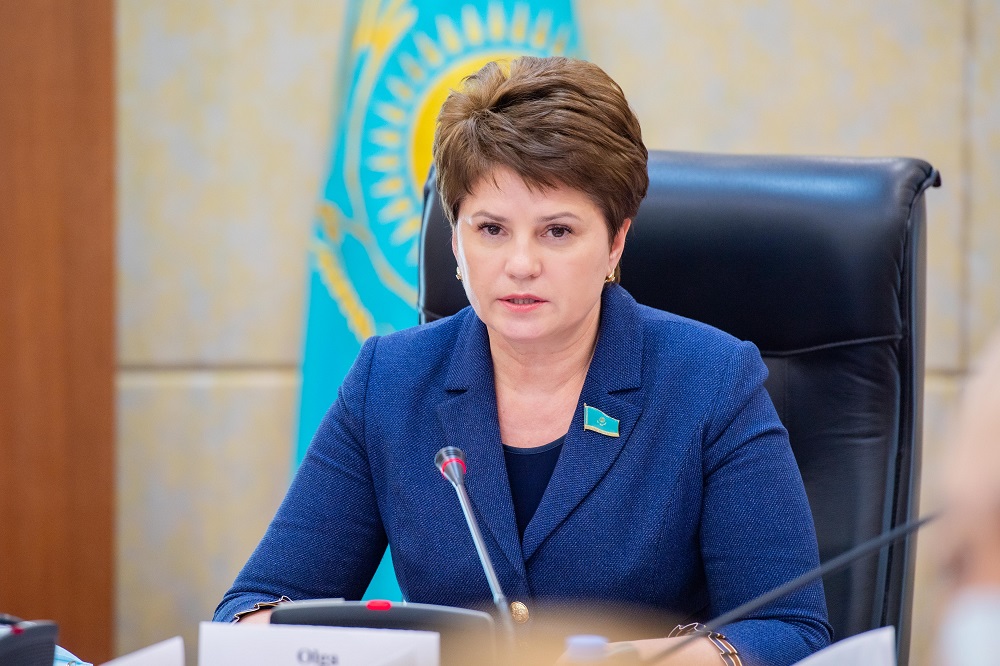Photo credit: Press service of the Senate of the Parliament of Kazakhstan
Today Members of the Senate of the Parliament of the Republic of Kazakhstan and representatives of the United Nations Development Programme met at a roundtable to discuss Kazakhstan's progress in human development.
Opening the event, Senate Deputy Speaker Olga Perepechina noted that the report presented provides an assessment of Kazakhstan's progress over three decades of its development in terms of the country's ability to achieve the Sustainable Development Goals.
"Great attention is paid to the relationship between the economy and the development of Kazakhstan's human potential through the use of knowledge as a necessary condition for a sustainable future," the Deputy Speaker said.
Photo credit: Press service of the Senate of the Parliament of Kazakhstan
“The country has achieved significant development results: key market reforms have been implemented, the poverty rate has been reduced, and the public service delivery system has been improved. However, it is critical to sustain this progress in a fragile and unpredictable environment with new global, regional and national challenges,” said Yakup Beris, UNDP Resident Representative in Kazakhstan. He also highlighted the importance of building partnerships and reaffirmed UNDP’s commitment to supporting the country and the people of Kazakhstan on this journey.
Photo credit: Press service of the Senate of the Parliament of Kazakhstan
The Chief Economist of the UNDP Regional Office for Europe and the CIS, Ben Slay gave an overview of Kazakhstan's progress on the key components of human development - health, education and decent living conditions.
According to the report, over the past 30 years, Kazakhstan has improved its position in the global ranking of the Human Development Index (HDI). Kazakhstan has actively managed human development, responding to the challenges of each decade. The country was able to increase its HDI and enter the group of countries with a very high level of human development, where it ranked 51st among 189 countries and territories. However, progress over these three decades has not been uniform. Overall, the HDI increased by an average of 0.6 percent per year over 30 years, just below the global average of 0.7 percent.
During the roundtable, the Minister of National Economy, Alibek Kuantyrov, the First Deputy Minister of Labor and Social Protection of Population, Akmadi Sarbasov, and the Chairperson of the National Commission for Women's Affairs and Family and Demographic Policy under the President of the Republic of Kazakhstan, Lazzat Ramazanova, presented the national perspectives of human development in the new realia, including in relation to low-carbon growth, the labor market and the system of social protection, as well as the agenda of gender equality and women's empowerment. The event is being held to mark the 30th anniversary of Kazakhstan's accession to the United Nations.
Photo credit: Press service of the Senate of the Parliament of Kazakhstan

 Locations
Locations








